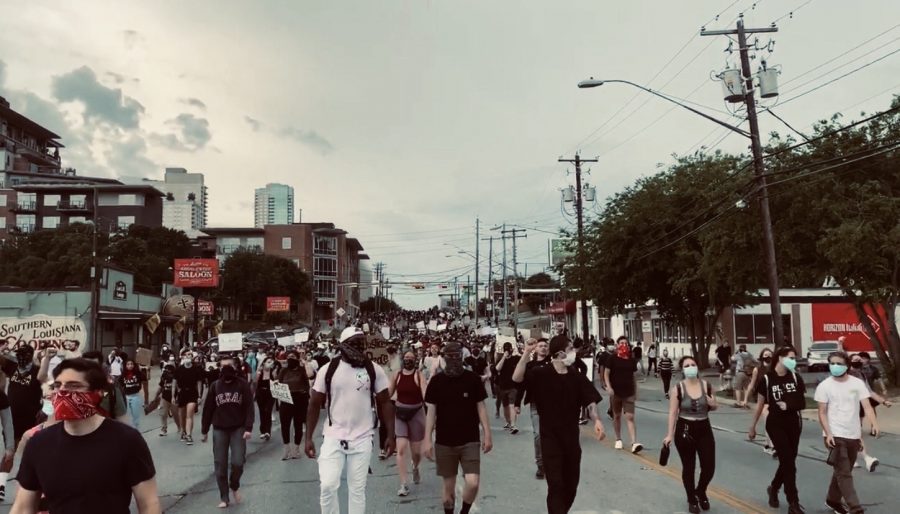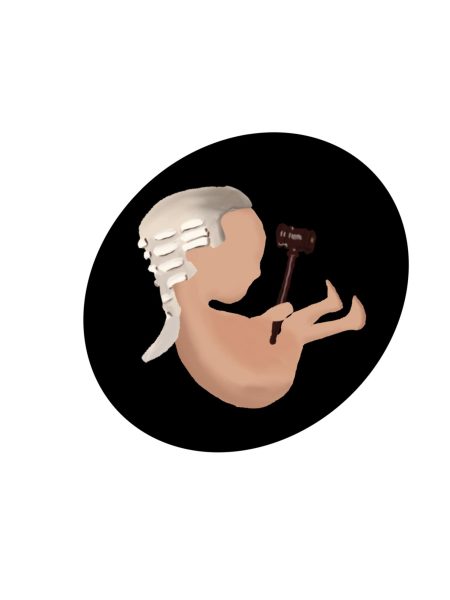Lackadaisical authority in the face of social justice
August 25, 2020
I am a Latina and my opinions and life experiences are not representative of how it feels to be Black in America.
If you were to ask me whether I believe that looting and destruction of property during the recent unrest over the police murder of George Floyd was understandable, I’d have to say yes. Even though several of my own family friends’ historical businesses have been destroyed from the looting in San Antonio, I still stand by my nation’s expression of outrage. If half the people who had an issue with property destruction donated money to our local businesses, we’d be able to rebuild and reflect on why our nation has chosen violence this time around to protest police murder.
However, that’s just it: You can resurrect a building with the help of the community, but you cannot resurrect a human life.
Am I stating that property damage is allowable and should occur every time there is civil unrest? Absolutely not. However, if we dive into the history of Black protest for justice and what violent versus nonviolent response has yielded, the pattern has historically been that attempts at legislation for racial equality are mainly passed after physical damage occurs.
If we are truly concerned about the damaged infrastructure of our cities, we need to pull out our wallets and donate both our money and our time to these businesses. Not only that, but we still need to understand the reasoning behind the violence we witness from members of our nation’s lowest socioeconomic bracket.
Why is it that the police officers who murdered George Floyd are some of the only ones who have been tried for murder, and in the second degree, mind you, not first like it should be? If I were a surgeon who was found to be committing malpractice — especially that led to patient death — on top of paying millions in malpractice insurance, I would almost be expected to serve jail time. Why are there less lethal reprimands on a career that is lethal a higher percentage of the time?
We’ve done peaceful protests for decades. I personally remember my freshman year of college in 2012-13 when the Black Lives Matter movement first became visible for protesting the murder of Trayvon Martin. I thought, “This is it! Finally, we’ll get some police reform!” That was eight years ago. Obviously, police brutality and protests against it can be traced back decades, if not centuries.
However, the Black Lives Matter movement was a catalyst for the first social media mass recognition of our police’s systematic murder of Black Americans without police jail time or even arrest.
So, I protested peacefully for Trayvon Martin. When nothing changed, I felt angry as I saw systemic racism all around me at a predominantly white institution: Baylor University.
Then came 2013 and 2014 with the murders of Tamir Rice, Tanisha Anderson, Mya Hall, Walter Scott and Sandra Bland. Once again, there were no real police reprimands or murder charges. I became a more and more angry person as each case rolled out with no sight of change.
Again, I marched peacefully, but this time, I received backlash in 2015 for participating during peaceful student protests for Freddie Gray. That year also played host to the deaths of nine people killed in an arson on a black church, and we peacefully protested again.
In 2016 came the horrifying video capturing the animalistic murder of Philando Castile in front of his girlfriend. Even with video evidence, the policeman was still acquitted of every charge, just like all the others.
So let me ask you this, dear reader: Are you concerned? If not, do you realize that you’re complacent in a world where your tax dollars could get you or your loved ones murdered? Worse yet, do you realize the person doing the crime will have practically no consequences for doing so?
If we are told that going against the despicable history of social injustice in the United States is immoral, the foundations our democracy was formed on will diminish. This is a moment in our history, where authority should be questioned, and in that way, progress becomes practical.











